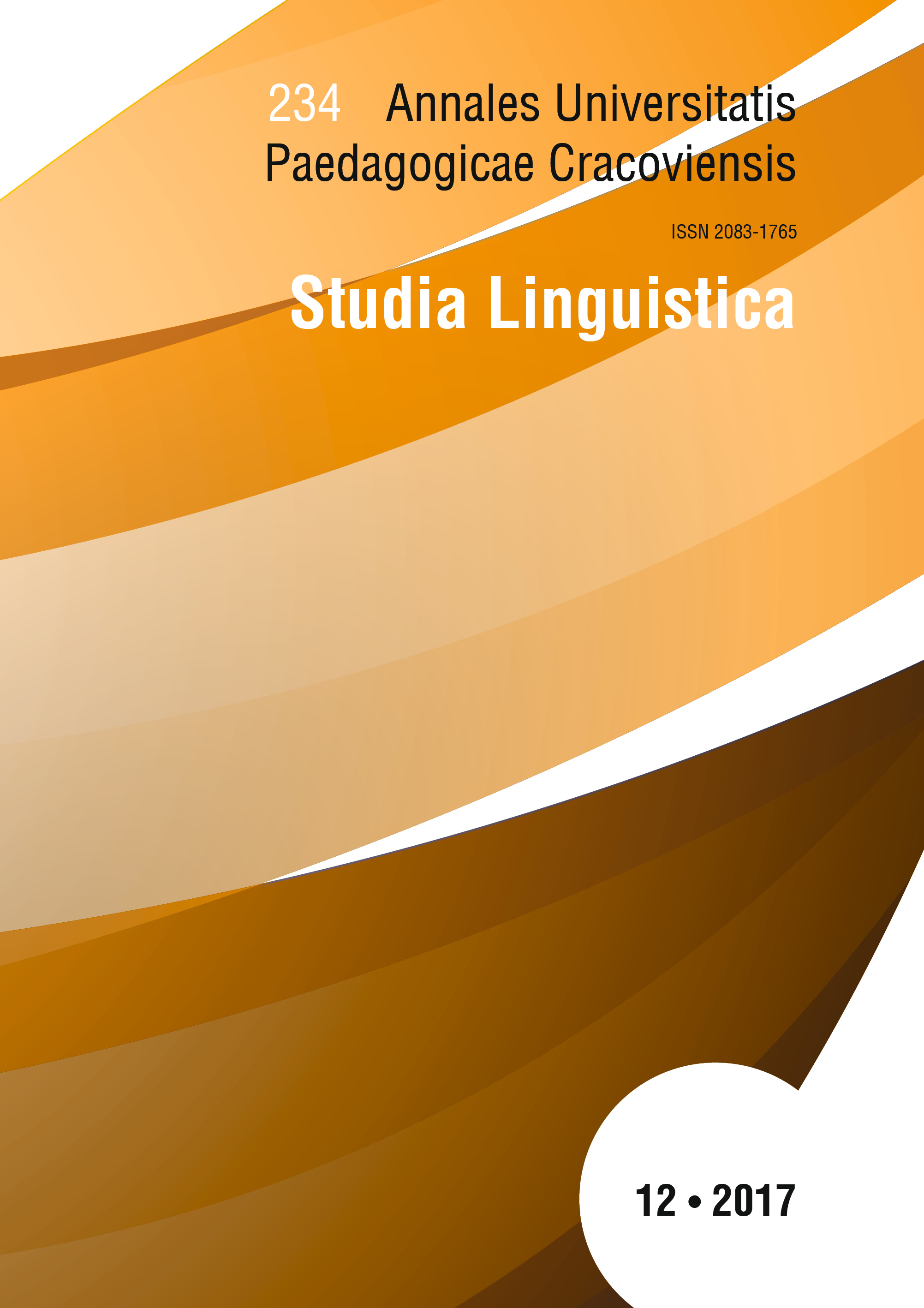ТОСКА, or how to talk about sadness in Russian and Polish (on some literary examples)
Main Article Content
Abstract
The article focuses on ways of expressing sadness in Russian and Polish, particularly on the features of the linguo-cultural concept of ТОСКА, which is difficult to express in translation. Selected translation decisions are analysed of quotations from literary classics from various epochs, such as Maria Dąbrowska, Jarosław Iwaszkiewicz or Aleksander Wat - as translators of Chekhov. Some examples from Old Russian and Romantic epochs are discussed too in Julian Tuwim’s translation into Polish and Wilhelm Lewik’s into Russian. It is confirmed that for some concepts, such as ТОСКА, ДУША, СУДЬБА, no corresponding ones exist in other languages and other linguo-cultural equivalents need to be proposed.
Downloads
Article Details

This work is licensed under a Creative Commons Attribution-NonCommercial-NoDerivatives 4.0 International License.
Author, submitting a text to the editorial board of the journal “Annales Universitatis Paedagogicae Cracoviensis. Studia Linguistica", certifies that the content of the article has not been published so far and that the work does not violate in any way the copyright or related rights of other person, as well as other rights of third parties, and that no one's rights to the work (or any part thereof) have been missed. After signing the contract, the property rights to the published materials are transferred to the Scientific Publisher of the University of the National Education Commission, Krakow.
“Annales Universitatis Paedagogicae Cracoviensis. Studia Linguistica” is an open access journal, and all its content is made available free of charge to users and institutions under the Creative Commons CC-BY-NC-ND 4.0 license (attribution, non-commercial use, no derivative works). Under this license, the authors agree that their work may be lawfully reused for any purpose, except for commercial purposes, without the prior consent of the author or publisher. Everyone can read, download, copy, print, distribute and process these works, provided that the author's marking and the original publication place are correct. Published texts may not be used to create derivative works (e.g. to translate and publish in another language without the consent of the publisher). This is in line with the BOAI (Budapest Open Access Initiative) definition. "Studia Linguistica" does not charge for submitting or processing articles.
References
Бердяев Н., 1990, Судьба России, Советский писатель, Москва.
Google Scholar
Булгаков М., 2007, Собрание сочинений в 8 томах, t. VII: Мастер и Маргарита, АСТ, Астрель, Москва.
Google Scholar
Колесов В., 2007, Русская ментальность в языке и тексте, Петербургское востоковедение, С-Петербург.
Google Scholar
Ларина Т., 2009, Категория вежливости и стиль коммуникации. Сопоставление английских и русских лингвокултурных традиций, Рукописные памятники Древней Руси, Москва.
Google Scholar
Мицкевич А., 1974, Стихотворения, Художественная литература, Москва.
Google Scholar
Платонов А., 1978, Избранные произведения, t. I: Рассказы (1921–1934), Художественная литература, Москва.
Google Scholar
Пушкин А., 1978, Собранные сочинения, Художественная литература, Москва.
Google Scholar
Солженицын A., 2000, Русский словарь языкового расширения, 3-е изд., Русски путь, Москва.
Google Scholar
Степанов Ю., 1997, Константы. Словарь русской культуры, Языки русской культуры, Москва.
Google Scholar
Степанов Ю., 2007, Концепты. Тонкая пленка цивилизации, Языки слaвянских култур, Москва.
Google Scholar
Чехов A., 2014, Дама с собачкой. Повести и рассказы, Эксмо, Москва.
Google Scholar
Bułat Silva Z., Saudade, czyli portugalska tęsknota za czymś, co być mogło, a nie było, [w:] Anatomia szczęścia. Emocje pozytywne w językach i kulturach świata, 2005, red. A. Duszak, N. Pawlak, Wyd. UW, Warszawa.
Google Scholar
Bułhakow M., 2016, Mistrz i Małgorzata, tłum. L.A. Przebinda, G. Przebinda, I. Przebinda, Znak, Kraków.
Google Scholar
Czechow A., 1956, Zrozumiał, tłum. A. Wat, [w:] A. Czechow, Dzieła w jedenastu tomach, red. N. Modzelewska, t. II: Opowiadania, Czytelnik, Warszawa.
Google Scholar
Czechow A., 1984, Wańka i inne opowiadania, Nasza Księgarnia, Warszawa.
Google Scholar
Czechow A., 1989, Opowiadania i opowieści, Zakład Narodowy im. Ossolińskich, Wrocław.
Google Scholar
Mickiewicz A., 1993, Wiersze, [w:] A. Mickiewicz, Dzieła w siedemnastu tomach, t. I, Wydanie rocznicowe 1798–1998, Czytelnik, Warszawa.
Google Scholar
Nabokov V., 2016, Własnym zdaniem, tłum. M. Szczubiałka, Aletheia, Warszawa.
Google Scholar
Opowieść o niewidzialnym grodzie Kitieżu. Z legend i podań dawnej Rusi, 1988, wybór i przekład R. Łużny, Pax, Warszawa.
Google Scholar
Pesoa F., 2007, Księga niepokoju spisana przez Bernarda Soaresa, pomocnika księgowego w Lizbonie, tłum. M. Lipszyc, Świat Literacki, Warszawa.
Google Scholar
Styrcz-Przebinda L., 2014, Słowiańskość w zachodnim świecie. Nabokov, wieczny tłumacz, [w:] Komunikacja międzykulturowa w świetle współczesnej translatologii, t. I, red. R. Kujawska i in., UWM, Olsztyn.
Google Scholar
Tuwim J., 2006, Tłumaczenia poetyckie, Zakład Narodowy im. Ossolińskich, Wrocław.
Google Scholar
Wierzbicka A., 1999, Język – umysł – kultura, Wydawnictwo Naukowe PWN, Warszawa.
Google Scholar
